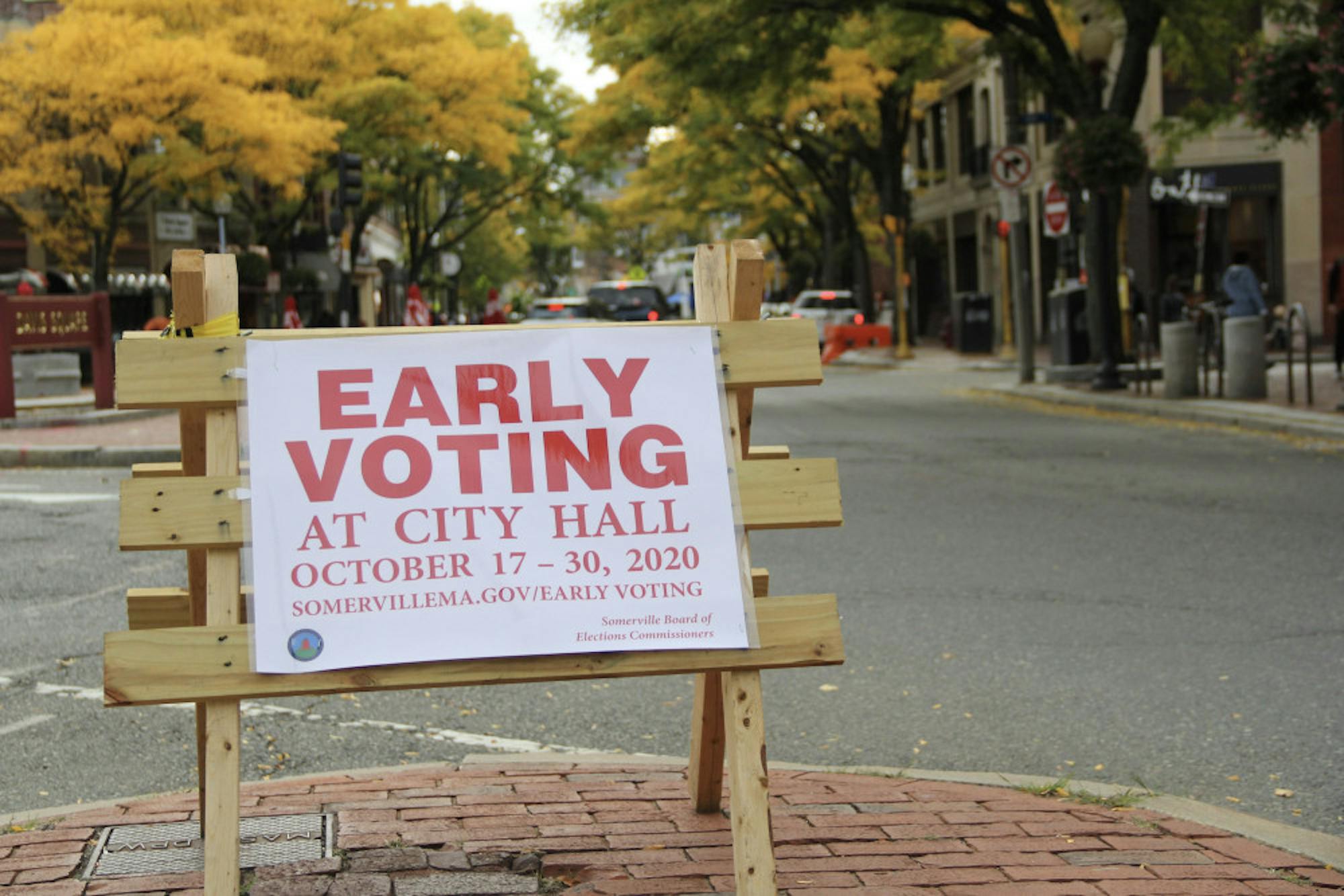Tufts is snuggled between two towns, in two different legislative districts at the state and federal level. Students living downhill are in Somerville, part of the 27th Middlesex District of the Massachusetts General Court, and Massachusetts’ 7th Congressional District of the U.S. House of Representatives. Their representative in the General Court is Denise Provost, who is outgoing and will soon be replaced by Erika Uyterhoeven. Their representative in Congress is Ayanna Pressley, who defeated longtime incumbent and former Somerville Mayor Mike Capuano in 2018. Conversely, students living uphill are in Medford and live in the 34th Middlesex District of the Massachusetts General Court and Massachusetts’ 5th Congressional District of the House of Representatives. Their representative in the General Court is Christine Barber, and their U.S. Representative is Katherine Clark.
On top of that, all of Tufts lies within the 2nd Middlesex District of the Massachusetts state Senate, represented since 2005 by Sen. Pat Jehlen, and in the 6th District of the Massachusetts Executive Council, currently represented by Terrence Kennedy.
For Tufts students, that makes for three legislators and one councilor at the state level, and two representatives at the federal level, Massachusetts’ two senators notwithstanding. All of them are on the ballot this year, except for the outgoing Rep. Provost. All but two of those names — Reps. Clark and Pressley — arerunningunopposed.
It might seem like general election season is uneventful in Massachusetts. The state has a“solid democratic” rating from the Cook Political Report, and the last time Massachusetts went for a Republican presidentwas in 1984. Republicans in the state have little incentive to run candidates in races other than the governorship, where they historically win quite often, and select legislative districts.
Rep. Christine Barber faced an opponent in the primary, but like many of her colleagues, she advanced to the general election without any Republican or independent challengers. And for someone like Barber,a three-term incumbent serving on the Housing Joint Committee, the lack of competition has meant more time to address urgent problems at hand.
“Historically, at the state house, during this time of year in an election year, we have a much lighter legislative schedule, just because most of us are campaigning,” she said.
Barber noted that, with the arrival of the pandemic and economic crisis, the legislature extended its session through the fall.
“There is more to do,” she said. “But I think we have pivoted pretty quickly.”
For now, Barber’s priorities are obtaining relief for rent and food, making sure personal protective equipment is supplied to those who need it and raising money to fill the current and expected future budget shortfalls.
“This is not a time to be making cuts to programs,” she said.
In Barber’s case, a lack of electoral concerns might be helpful for keeping elected officials focused on the issues at hand. Also, the logistical problems associated with campaigning during a pandemic have not escaped her.
“I usually canvas and go door to door even when I’m not campaigning just to see where people are at,” she said. “And my campaign decided it wasn’t safe to do that … So, we did most of our campaigning by phone, which was OK. It was still a good way to have conversations with voters about what they’re worried about and all the challenges right now.”
Barber, being subject to reelection every two years, must constantly maintain a campaign mindset.
“Honestly, with two years, you’re always running,” she said. “Even in that first year, you have to think about what’s my plan, how am I getting ready, how am I reaching people. You’re constantly doing that.”
This arrangement, Barber says, has its pros and cons.
“It is sometimes used as sort of an excuse to not do the legislative work,” Barber said.
Surely, as Barber knows, that excuse holds no weight when running unopposed.
However, this lack of competition is a problem that Deborah Schildkraut, chair of the political science department, says is ultimately unhealthy for democracy. She recalls that in 2004, her first time voting in Massachusetts, she saw now-Sen. Ed Markey running unopposed for reelection to his seat in Congress.
“Regardless of what I feel about the outcome and who I want to win, competition is healthy for democracy,” she said. “And the fact that one party didn’t even field a candidate, I thought that was troubling.”
Schildkraut is aware that Massachusetts is a firmly blue state and sees the evidence right on the ballot.
“Clearly, the Republican Party is weaker locally here in terms of just being able to recruit and field candidates,” Schildkraut said. “That’s often a sign of party strength and vitality, and that’s something that is lacking.”
This sentiment is echoed in the state’s Republican Party leadership as well. The Boston Globe quoted Massachusetts GOP Vice Chairman Tom Mountainearlier this month admitting that “2020 is not the ideal year for Republicans to run races in Massachusetts.”
But no matter what, Schildkraut says, students should never feel as if their votes will not matter.
“Competition is really important and signaling support for [opposition] candidates is affirming for the democratic process,” she said.
One state office where competition seems to thrive is the governorship. Gov. Charlie Baker, a Republican, may have won over 60% of the vote in his 2018 reelection, but he won his first term by less than two points. Historically, Republicans are competitive and often win Massachusetts gubernatorial elections, having occupied the governor’s seat for 21 of the last 29 years.
“[Massachusetts] is a curious place in that regard,” Schildkraut said.
On their ballots, students will vote on contested propositions,, including Massachusetts ballot Question 2 on ranked-choice-voting. Schildkraut, however, points to more local questions as well. Voters in certain parts ofSomerville have two additional questions on the ballot that will act as nonbinding recommendations for their representatives, but they may end up being important lanes through which to inform elected officials of the will of the people.
Schildkraut says there is an argument to be made that competition still exists in local Massachusetts politics, but that it is mostly reserved for the governor’s race. Otherwise, competition occurs primarily among ideas rather than people.
“There can be this feeling of ‘Oh, my vote doesn’t matter because we all know how Massachusetts is going to go,’” Schildkraut said. “Even in those cases, it’s still important to vote.”






